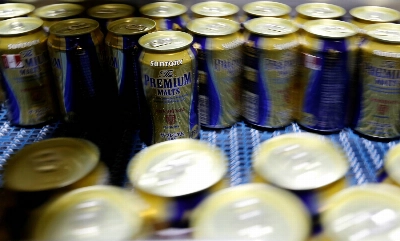Certainly the most interesting commercial success story to emerge from the British indie scene in the '90s was Glasgow's Belle & Sebastian, which contains neither a Belle nor a Sebastian but a shy singer-songwriter named Stuart Murdoch and a consortium of close friends. They garnered a dedicated underground following with oddly familiar folkish pop songs that covered adolescent themes in a truly literary style. After two albums and a dozen singles, written mainly by Murdoch, the band practically went communist with material that spread the songwriting chores rather equally among half a dozen people. Some complained about this direction, but B&S's main problem was more logistic. Murdoch never wanted to be a star, and a larger artistic profile prompted him to bury himself inside the band.
Murdoch's scheme now seems to be, if you can't beat 'em, join 'em. B&S's latest album, "Dear Catastrophe Waitress," plows full speed ahead into commercial pop with the help of producer Trevor Horn, whose biggest recent commission was t.A.T.u. He augments the group's acoustic chamber pop with strings and horns, but it says something about the band's newfound sense of purpose that the songs confound Horn's attempts to bottle them. The irresistible airtight melodies ultimately distract you from willfully wince-inducing rhymes, such as "I'd watch the Sunday gang in Harajuku/There's something wrong with me I'm a cuckoo." It's as if the band had set itself a challenge to produce the best, and weirdest, Top 40 album of 2003. And they certainly rose to it.



















With your current subscription plan you can comment on stories. However, before writing your first comment, please create a display name in the Profile section of your subscriber account page.